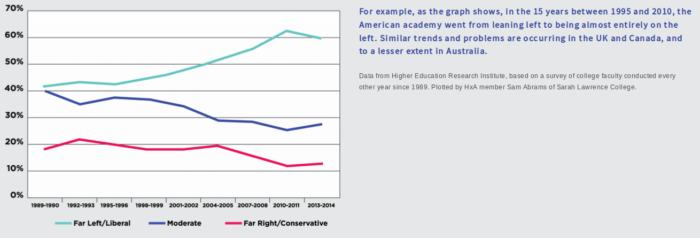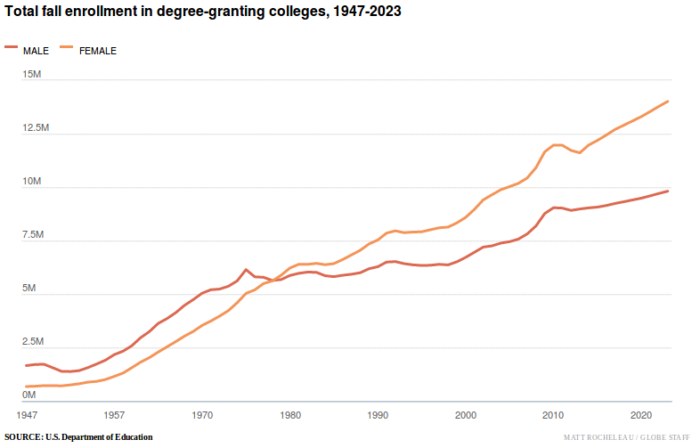Academia and privilege
When I was growing up in the 70s, when someone said something sexist others would say that person was living in the past. “It’s not the 50s anymore. Get with the times, chauvinist pig.”
It took people time to catch up with how times had changed.
I’ll come back to chauvinism and living in the past in a moment.
Privilege in academia in the past
Today people talk about how privilege helps some groups advance in academia versus others. This Atlantic article, What I Learned About Life at My 30th College Reunion, prompted me thinking about it. It said:
I don’t love the fact—now made public through the trial but previously understood by all of us to be true—that the kids whose parents donate buildings are given preferential treatment over those whose parents don’t.
I think everybody agrees that top schools chose students based on criteria besides academic merit. They privileged applicants for various reasons, resulting in more students of some types than others—rich people, in the case the quote implies.
Academia today
According to Heterodox Academy, co-founded by podcast guest Jonathan Haidt, in the 15 years between 1995 and 2010, the American academy went from leaning left to being almost entirely on the left. Similar trends and problems are occurring in the UK and Canada, and to a lesser extent in Australia.

According to Heterodox Academy, universities have become more liberal since the 90s.
The Boston Globe reported a couple years ago in On campus, women outnumber men more than ever that
Women accounted for 55 percent of undergraduates enrolled at four-year colleges in the United States as of fall 2014, according to the most recent data available from the federal education department.
It’s not a new phenomenon. Women have outnumbered men on college campuses in the US by a widening margin since the late 1970s, and the gap will continue to grow in coming years, according to some projections.

The male to female ratio in colleges since the 40s.
If a group’s overrepresentation in the past implied privilege, what can we conclude, if anything, from liberals and women being majorities that are increasing?
Does academia privilege liberals and women today?
The logic from the past suggests that academia may be privileging these groups. The numbers for liberals seem overwhelming. There are more scholarships for women than for men. There are many programs to promote more women in many fields with mostly men, but I see few to promote men in fields with mostly women, like nursing and teaching.
It’s tempting to say that society marginalized these groups in the past, hence there’s value in supporting them. Let’s say they were marginalized. Let’s say society continues to marginalize them outside academia. They don’t seem marginalized today in schools.
To say they are marginalized today seems like living in the past, like the chauvinists in the 70s.
I’m asking a provocative question, but not idly. Times have changed and many people haven’t realized. Many are still fighting battles perceiving lines where they were generations ago, often hurting people who are suffering and helping people who are already privileged.
At least I see such patterns. While boys and young men get lower grades and are forced out of the educational system, increasing resources are devoted to helping girls and young women. It seems times have changed but people haven’t changed with them.
Not that it should matter for the point I’m making, but if you look at how I vote, my activism, and most of my behavior, I act with liberal values. In fact, I often find myself frustrated at people who I vote with who don’t seem to know the issues but just seem to follow trends without reflection, understanding, or introspection, though I see that behavior in all groups.
Read my weekly newsletter

On initiative, leadership, the environment, and burpees